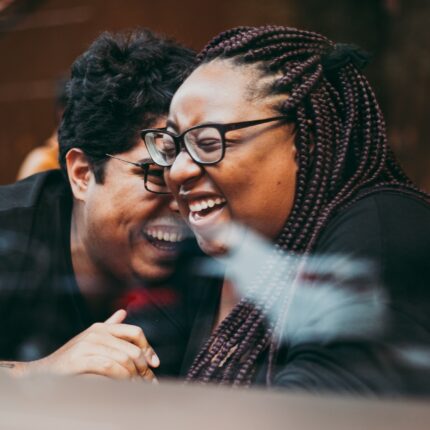
5 practical ways to deal with ambiguity in dating
Ambiguity in dating can be very frustrating. Mixed messages can leave one feeling upset, disappointed, and confused. Most of us have been in situations where you like someone, and things seem to be going great, but all of a sudden, things change. They start acting differently towards you, or, one minute they seem very interested in you and in taking the relationship further, and the next, it seems like they don’t have any time for you. So, what can you do?
How can you identify ambiguity in dating? Some examples of what this could look like include:
- Sending you mixed messages / signals
- Making repeated excuses not to meet
- Not responding to your messages
- Avoiding direct questions about their feelings for you or the relationship
- Not being clear with their feelings about you or the future of the relationship
- Blowing ‘hot and cold’, leaving you feeling unsure of where you stand with them
What can you do you do if you find yourself in this type of situation? Here are five suggestions to consider.
Address / confront it
 You don’t need to be aggressive about ambiguity in dating, but it is important that you don’t ignore it. Keep an open mind in case the person is not aware of what they are doing – they may be genuinely still processing their thoughts and feelings about you. But you need to call them out on it and explain to them what you have observed and how it makes you feel.
You don’t need to be aggressive about ambiguity in dating, but it is important that you don’t ignore it. Keep an open mind in case the person is not aware of what they are doing – they may be genuinely still processing their thoughts and feelings about you. But you need to call them out on it and explain to them what you have observed and how it makes you feel.
When addressing it, you may also want to give specific examples or scenarios where you have felt that they were being evasive or ambiguous, and how they could have handled things differently instead. If they are genuine, they will make an effort to change so that you don’t have any doubts about how they feel about you. If they are not, well – there’s your answer.
Encourage them to be direct and honest with you about their feelings
Closely linked to addressing it, if you can tell that the person is genuine and perhaps struggles to share how they feel (one way or the other), you can help by encouraging them to be honest with you and letting them know that you wouldn’t take offence if they decide the relationship is not for them. It is better to know where you stand sooner rather than later.
Protect yourself and your heart by not indulging them
It’s nice to get attention from someone, and sometimes there can be the temptation to just enjoy the moment, even if you’re not entirely sure of their intentions. But doing this will only lead to heartbreak down the road. So, set boundaries to protect yourself.
If the relationship hasn’t been defined – perhaps the person says they need time – you may decide to keep talking as friends but don’t let them do things for you or address you in ways that will only get your hopes up, or act in any way that would be considered more than just friends. Don’t let them get away with being romantic one moment and then ignoring you the next, or saying things to make you think they are interested when you know they might not mean it.
Keep your options open
 As well as protecting your heart, you need to keep your options open. Keep seeing other people and exploring other connections. The saying ‘don’t put all your eggs in one basket’ is especially true when you find yourself in a relationship that is not yet clearly defined. Building other friendships and connections allows you to be a bit clearer on what you like and how you like to be treated. It also prevents you from focusing on just one person that may not actually be really interested after all.
As well as protecting your heart, you need to keep your options open. Keep seeing other people and exploring other connections. The saying ‘don’t put all your eggs in one basket’ is especially true when you find yourself in a relationship that is not yet clearly defined. Building other friendships and connections allows you to be a bit clearer on what you like and how you like to be treated. It also prevents you from focusing on just one person that may not actually be really interested after all.
Lastly, know when to draw the line and disengage
 You may want to give them an ultimatum (although you would need to be careful about this and be sure to follow through if you decide to go down that route). For your own emotional wellbeing, however, and to be able to move forward, you need to know when to say ‘enough is enough’, and cease communication with the person. That time frame would be different for different people, and if you see real potential in the relationship you may want to exercise a bit more patience. But ultimately, there needs to be a point at which you draw the line and let them go.
You may want to give them an ultimatum (although you would need to be careful about this and be sure to follow through if you decide to go down that route). For your own emotional wellbeing, however, and to be able to move forward, you need to know when to say ‘enough is enough’, and cease communication with the person. That time frame would be different for different people, and if you see real potential in the relationship you may want to exercise a bit more patience. But ultimately, there needs to be a point at which you draw the line and let them go.
And here’s one more thing to think about: you might be reading this and have a realisation! Perhaps you’ve never considered that you’re the one being ambiguous in the relationship. Perhaps it’s time to reflect on your current (or past) situation and consider how you treated the person you were seeing. Would you like to be treated in the same way? If not, think about what you could do differently in future. Make the conscious decision now to be clear and honest, not to string people along, and to treat people how you would like to be treated.
Have you experienced ambiguity in dating? How did you respond?
If you’ve found ‘5 practical ways to deal with ambiguity in dating’ helpful, you might like other posts by Urenna, like ‘The importance of sending out the right signals when dating‘ and ‘3 simple ways to be a blessing as you date‘

